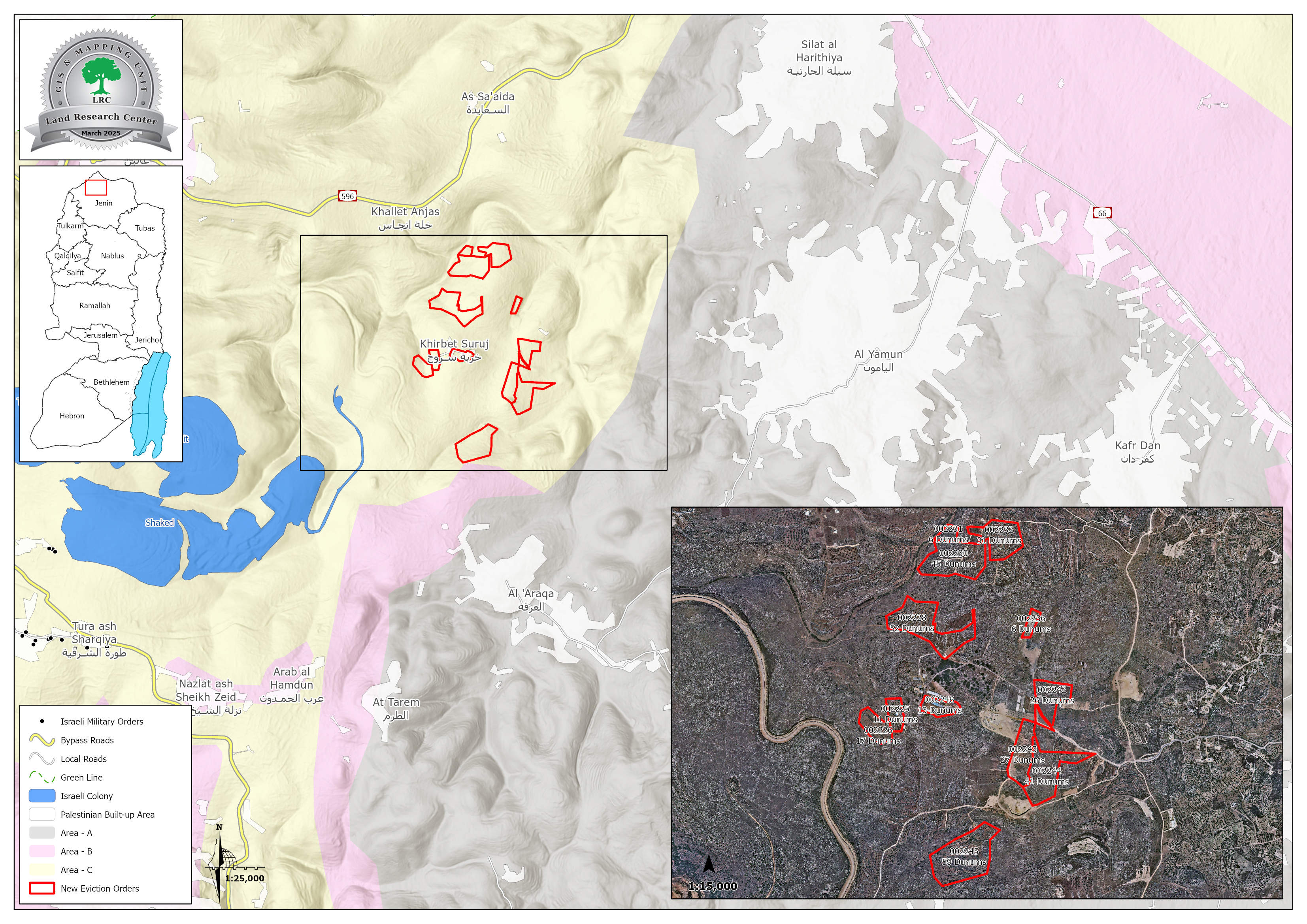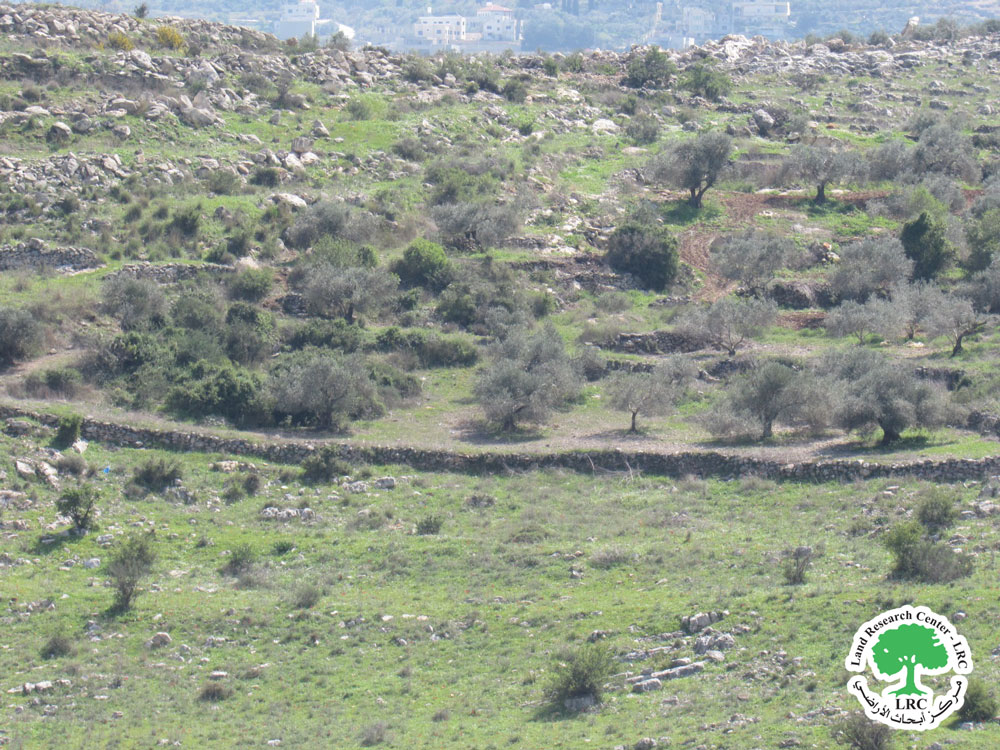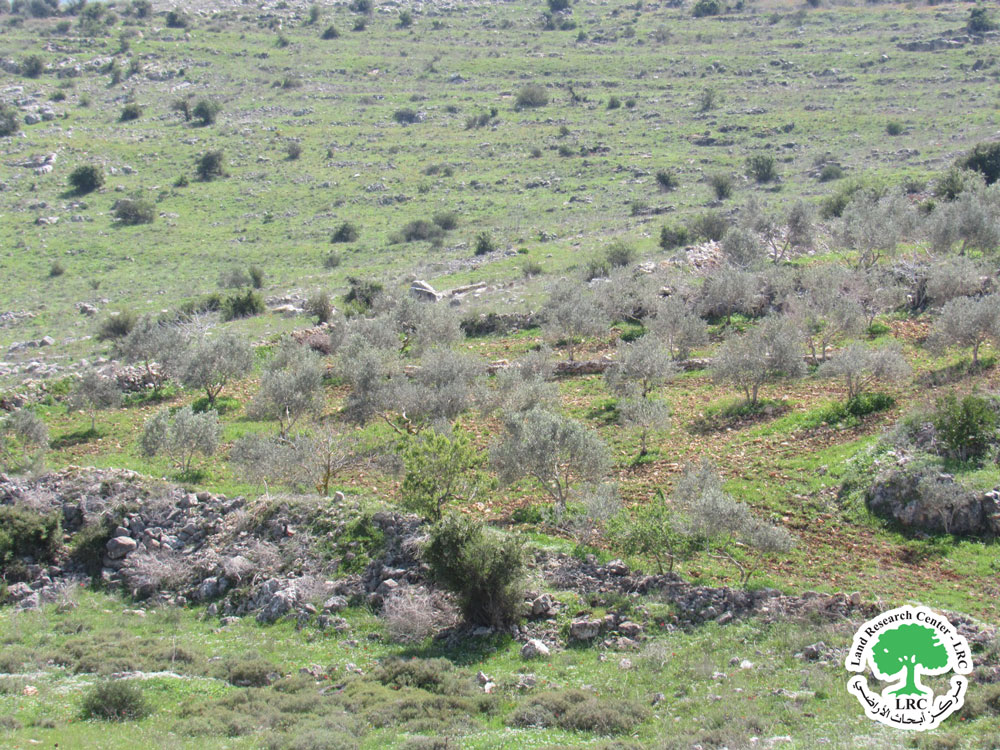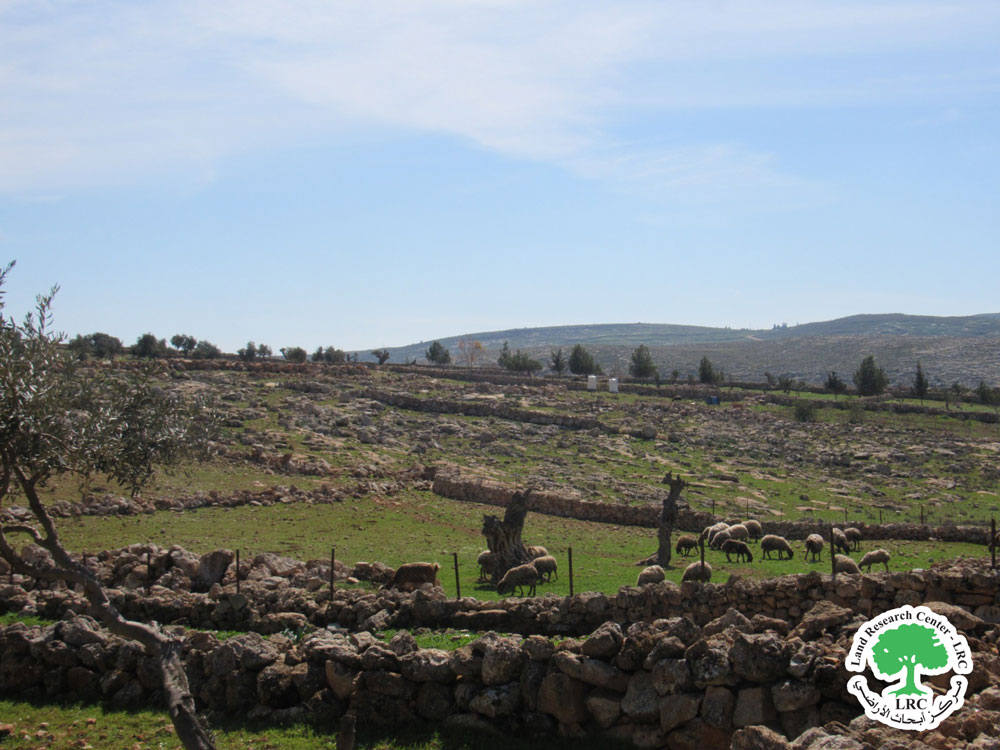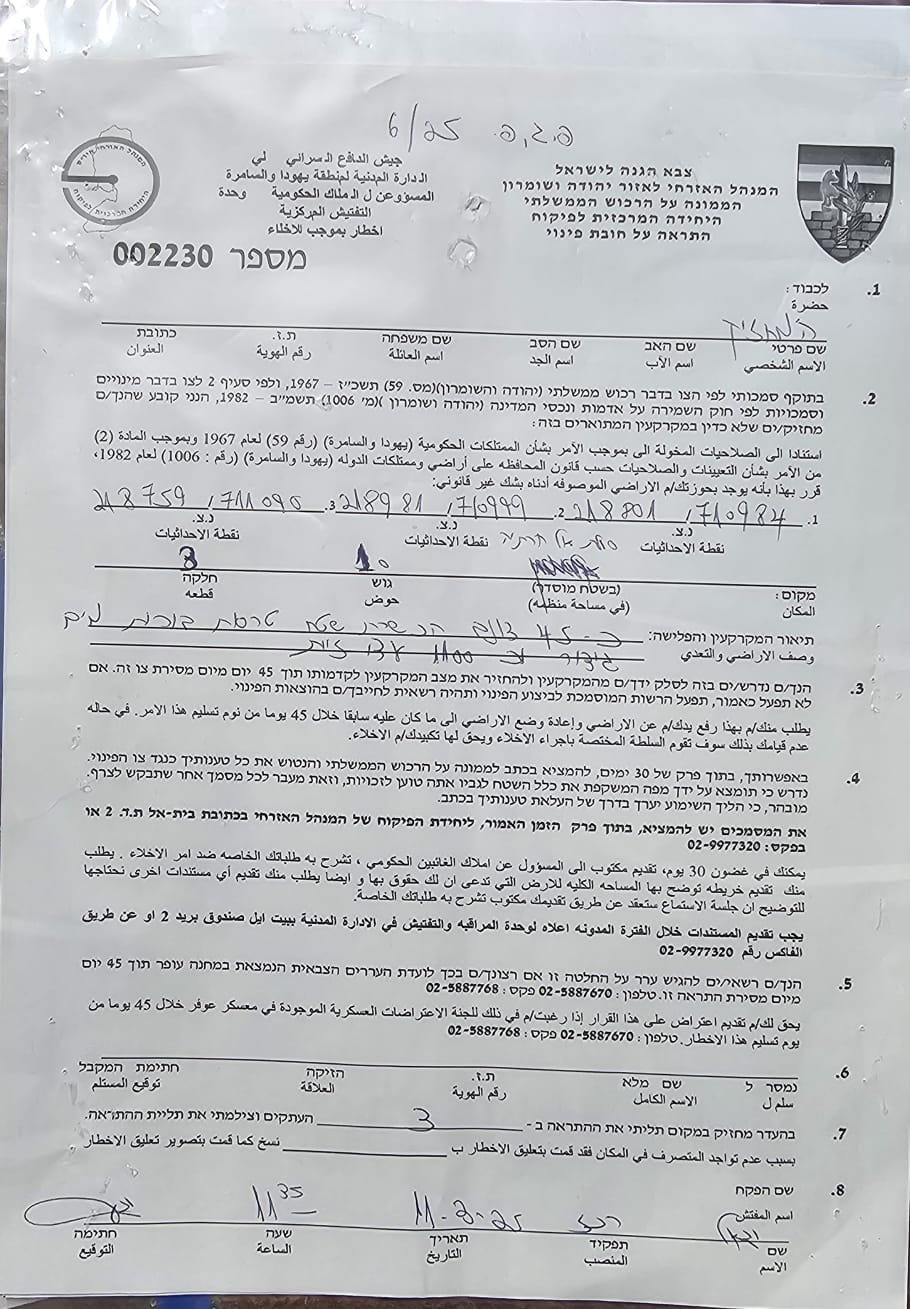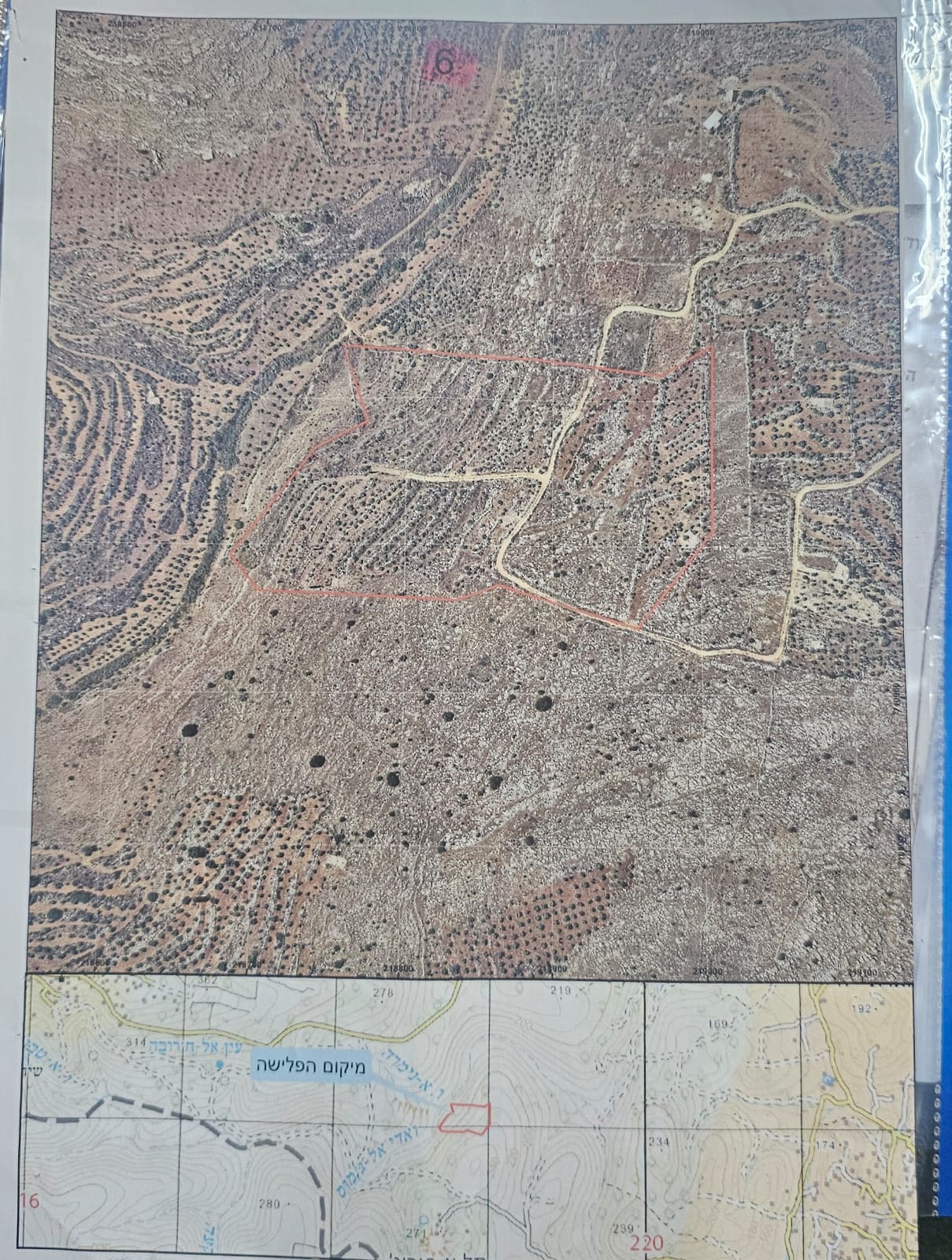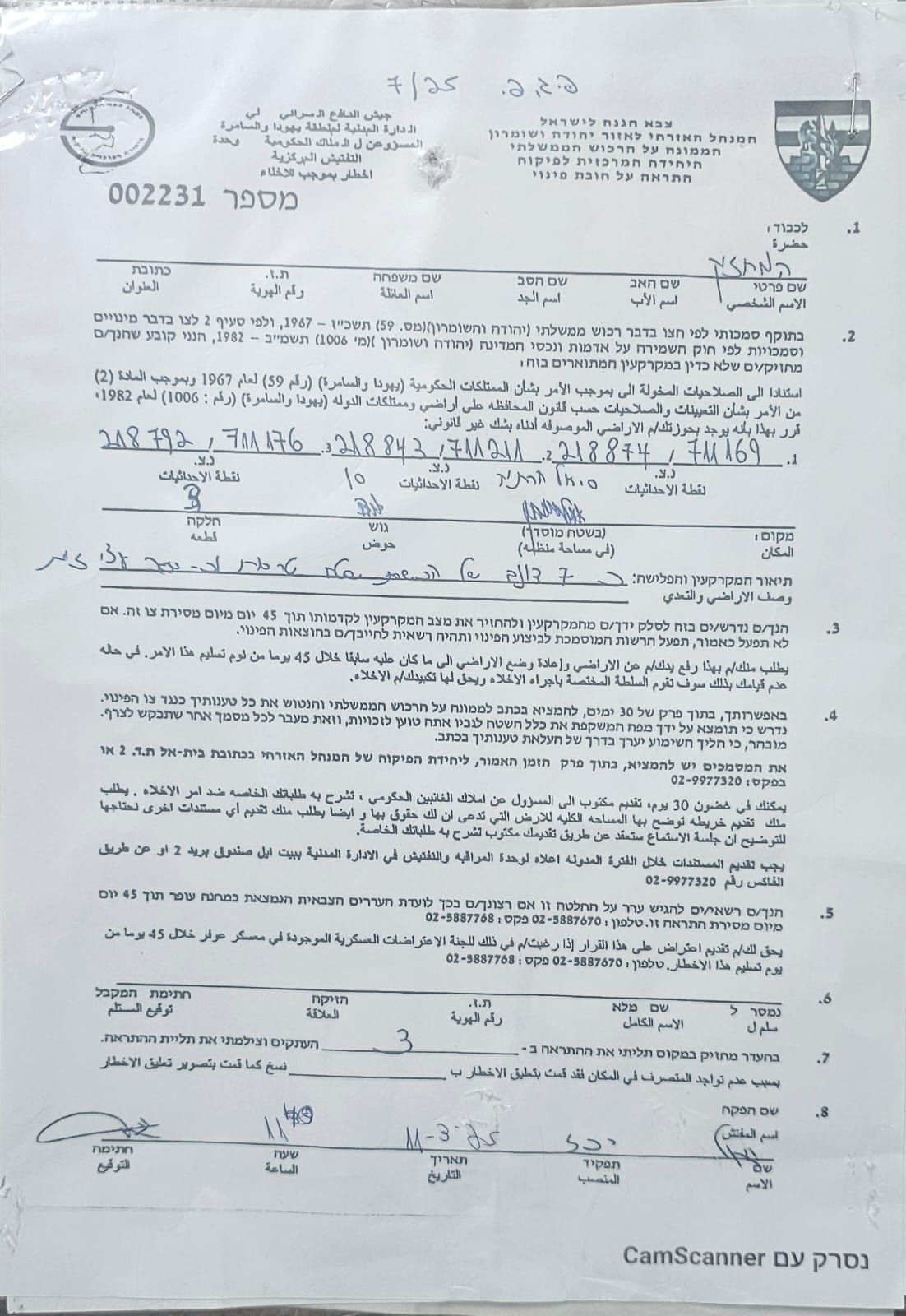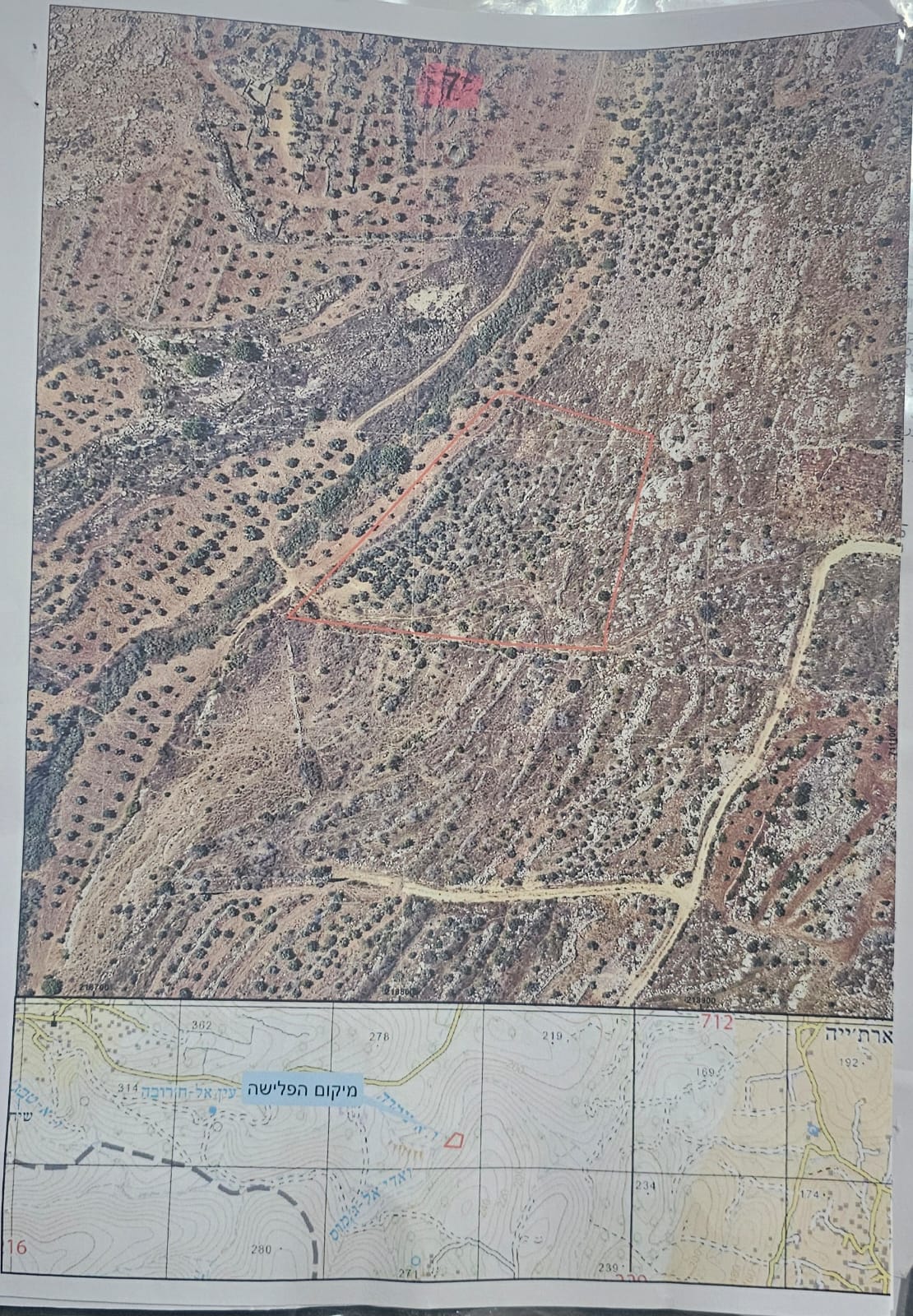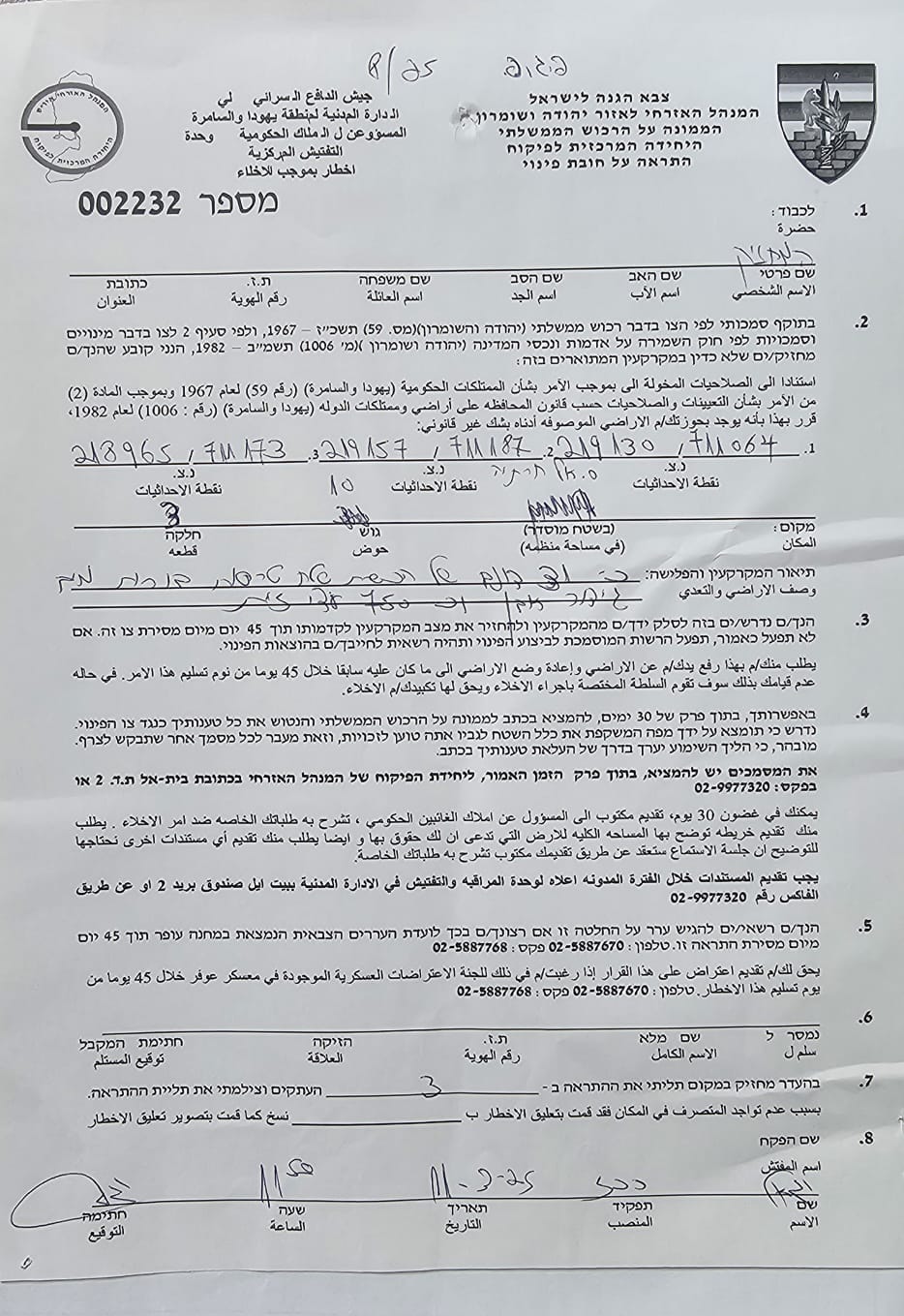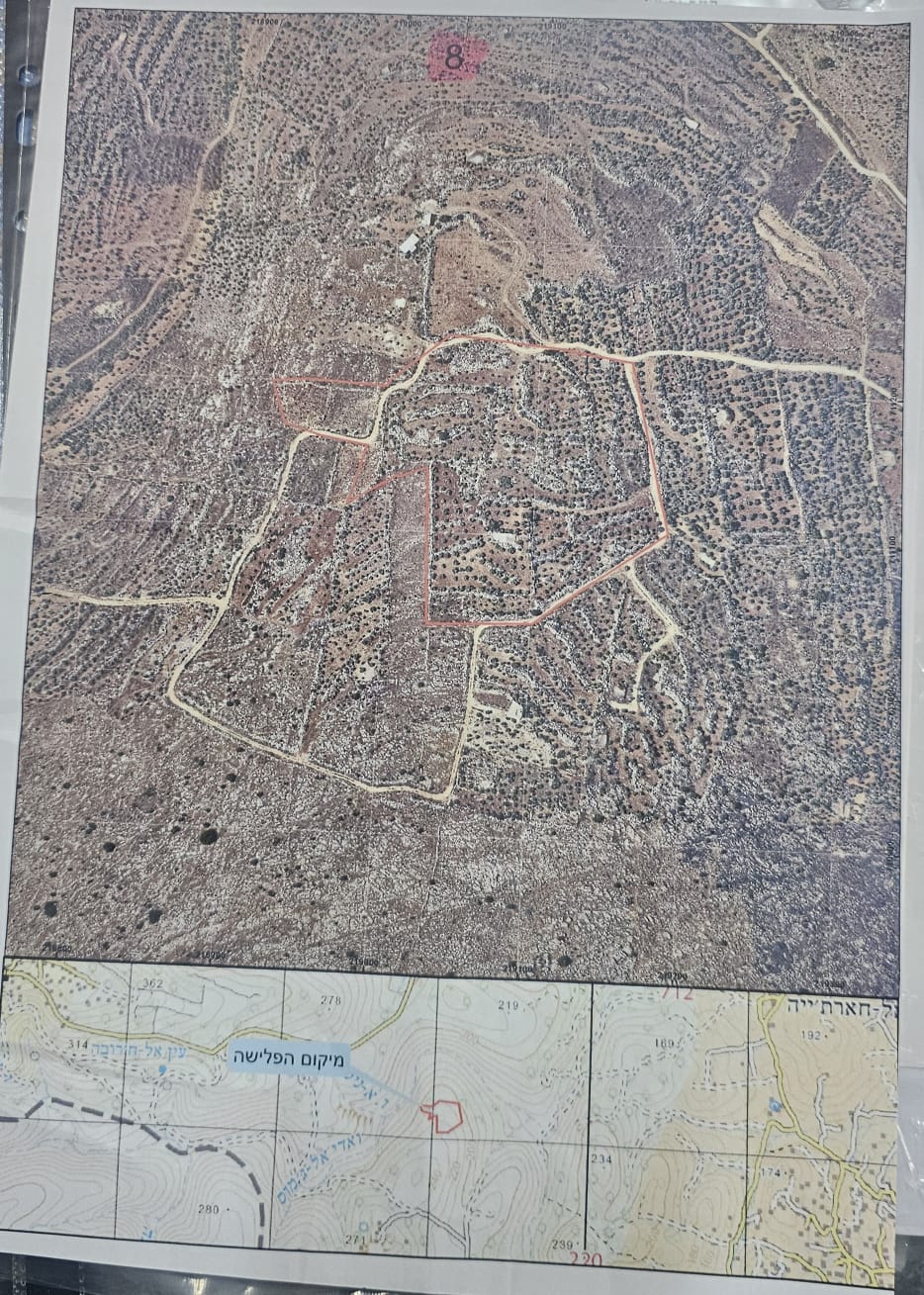Eviction Notice for Cultivated Agricultural Lands in the Town of Silat al Harithiya, West of Jenin
Violation: Eviction notices for 83 dunums on the grounds that they are “state land.”
Location: Silat al Harithiya, northwest of Jenin city.
Date of Violation: March 11, 2025.
Responsible Party: The Israeli Civil Administration’s Custodian of Government Property.
Affected Party: A number of local farmers.
Description:
On the morning of Tuesday, March 11, 2025, the town of Silat al Harithiya , located northwest of Jenin, was raided by teams from the Israeli Civil Administration, part of the occupation authorities. The teams targeted the southern area of the town and handed out written military eviction notices, demanding the evacuation of several land plots within 45 days from the date of the notice, under the claim that the land is “state land” being used illegally.
It is worth noting that some of the targeted lands were rehabilitated and planted with olive trees in 2013, and water collection wells were established there as part of a project implemented by the MA’AN Development Center.
A View of the Lands Targeted by the Occupation’s Eviction Notices
Below are the names of the landowners targeted by the eviction notices, along with information about their lands:
Notice Number | Name of the Notice Owner | basin |
plot of land |
area/dunum |
Impacted Land Description |
2230 | The heirs of Salem Musa Jaradat | 10 | 3 | 45 | A piece of land planted with olive trees, containing 1,100 olive saplings and a water collection well with a capacity of 60m³. |
Ezz El-Din Abdullah Al-Safouti | |||||
2231 | Jaafar Abdul Latif Shawahneh | 10 | 3 | 6 | A piece of land planted with olive trees, containing 200 olive trees, surrounded by stone terraces |
2232 | Musa Samir Al-Zayoud | 10 | 3 | 31 | A piece of land surrounded by stone terraces, containing 750 olive trees and a water collection well with a capacity of 90m³.
|
The heirs of Abdullah Jabr Al-Zayoud | |||||
Total |
| 30 | 9 | 83 | 2,050 olive trees and two water collection wells |
The Head of the Al 'Araqa Village Council stated:
“What the occupation is doing now is a continuation of an old plan that has been implemented in the area over the past years — a plan to seize water sources and prevent their use in the Silat al Harithiya plain. This has had a direct impact on agriculture, reducing cultivated areas and even changing the farming patterns in the region.
Today, the occupation returns with a new step, forcing people to leave their lands under the pretext that they are ‘state lands.’ But in reality, most of the affected farmers hold official documents, including rental agreements with the Jordanian government, long-standing farming contracts from the Jordanian era, and Jordanian land title deeds (tabu) with settled status. All of these clearly prove that the land has been in active use and inhabited for many years — refuting the occupation’s claim that the land is empty and belongs to the state.”
Affected farmer Nader Mohammad Jaradat told the Land Research Center researcher:
“Since 2005, we have rehabilitated several land plots and replanted them. These lands are rented from the Jordanian government, and we even built agricultural rooms and planted olive trees. We were shocked by the recent eviction notices.
Despite all of this, we insist on staying — these lands are part of who we are and a symbol of our presence in this area.”
It is worth mentioning that on March 3rd, the Israeli occupation issued eviction notices targeting around 300 dunums of land. The field research team at the Land Research Center documented these violations, which affected agricultural lands in the areas of Ya’bad and Al 'Araqa, under the pretext of “state land encroachment,” as claimed by the occupation.
To read the full report, click the following link:
"The Occupation Authorities Issue Eviction Orders for Nearly 300 Dunums in Jenin Governorate."
The LRC believes that, through such military orders, the occupying power is blatantly disregarding all international human rights conventions and laws. These actions represent a form of racial discrimination against Palestinians, stripping them of their property — whether it be homes or agricultural lands. This policy practiced by the Israeli occupation is a grave violation and a clear breach of international laws and conventions, which state the following:
- Article 174 of the Fourth Geneva Convention (1949):
“It is prohibited to destroy or seize property on a large scale unless justified by military necessity, and such destruction or seizure must not be carried out unlawfully, arbitrarily, or without legal justification.” - The Roadmap for Peace Agreement signed by the Israelis and Palestinians on April 30, 2003 (under the sponsorship of the United States, the European Union, Russia, and the United Nations), which states:
“The Government of Israel must immediately dismantle all settlement outposts erected since March 2001, in accordance with the Mitchell Report, and must freeze all settlement activity, including natural growth.”
(As adopted in UN Security Council Resolution 1515 - 2003.) - UN Security Council Resolution 446 (1979):
“Calls upon Israel to rescind its previous measures and to desist from taking any action that would result in altering the legal status, geographic nature, or demographic composition of the occupied Arab territories since 1967, especially Jerusalem, and not to transfer parts of its own civilian population into the occupied Arab territories.” - The Universal Declaration of Human Rights, adopted by the UN General Assembly Resolution 217 A (III) on December 10, 1948, which states:
“No one shall be arbitrarily deprived of his property.”
This clearly means that Israel has no right to destroy or confiscate Palestinian property under any pretext.
مشروع: حماية الحقوق البيئية الفلسطينية في مناطق "ج" SPERAC IV - FCDO
Disclaimer: The views and opinions expressed in this report are those of Land Research Center and do not necessarily reflect the views or positions of the project donor; the Norwegian Refugee Council.
إخلاء المسؤولية: الآراء ووجهات النظر الواردة في هذا التقرير هي آراء ووجهات نظر مركز أبحاث الأراضي ولا تعكس بالضرورة وجهات نظر أو مواقف الجهة المانحة للمشروع؛ المجلس النرويجي. للاجئين
